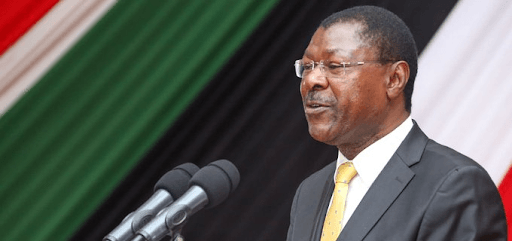The government has reserved land for the Sh5.8 billion Likoni Cable Car project restoring hopes of residents who had decried the slow uptake of the project.
The National Land Commission has ordered reserved, 0.4 hectares for use by the Kenya Ports Authority for 25 years to install the transport facility.
According to a notice by NLC chairman Gershom Otachi, KPA has 180 days to prepare and submit a plan for the development management and use of the reserved land.
The plan is to be submitted to the commission for approval “failure to which the management orders win stand revoked.”
“The management body (KPA) shall not part with the possession of the reserved land or any part thereof, without the written consent of the National Land Commission,” Otachi said.
He directed that KPA shall hold and use the reserved land strictly for the specified purposes of constructing the 500-metre cable car link and ancillary services.
Likoni Cable Cars is tipped to run the facility for 25 years before handing it over to Kenya Ferry Services under a public-private partnership arrangement.
Likoni Cable Car project, one of ventures highlighting President Uhuru Kenyatta’s infrastructure legacy, is yet to commence as was earlier stated.
It is meant to ease movement of persons across the crossing channel, a journey that is expected to take about three minutes.
Kenya Ferry Services signed an agreement for the implementation of the project in 2017 with Nairobi-based aerial transit firm Trapos Ltd.
KFS, during the signing of the agreement, said the project would begin before the end of 2019 but that is yet to be realised after the venture ran into headwinds.
Cabinet in 2018 approved the construction of the cable car link between the Mombasa mainland and island, which would be the first in East Africa if implemented.
The works involve constructing two 90-metre masts and two landing stations on either sides of the crossing point.
The development plan to be handed over to the lands agency, Otachi said, should take into consideration the physical planning regulations and other relevant laws in force.
“The plan should consider any conservation, environmental or heritage issues relevant to the development, management or use of the public land in its managed reserve,” the notice reads.
KPA is expected to submit a statement that it has taken the issues into consideration while drawing the plan.
The ports authority is further required to submit an environmental impact assessment plan pursuant to existing law on environment.
NLC has also directed the company gearing to run the project to ensure they pay land rates, ground rent, duties, and assessments from time to time.
“The company shall ensure that the road is accessible to the public for both motorised and non-motorised users throughout and any closure of the road shall be approved in writing by the Kenya National Highways Authority,” the notice reads.
According to the notice, KeNHA shall be responsible for the management, development, rehabilitation and maintenance of the national road.
“This will be except where it is agreed in writing between the authority and the management company,” Otachi said.
The cable car project will operate 22 cars (known as gondolas) with a carrying capacity of 38 passengers, projected to ferry up to 180,000 commuters daily.
Presently, commuters rely on ferries to cross the Likoni Channel, amid concerns of congestion and derelict machinery.
-Edited by SKanyara











